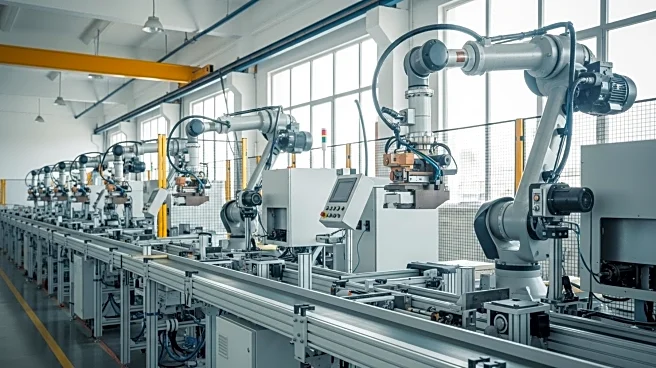What's Happening?
Bangladesh's manufacturing sector, a key driver of the country's economic growth, is currently facing significant challenges due to global economic conditions. The sector has been instrumental in transforming Bangladesh into one of the world's fastest-growing economies, with its share of GDP increasing from 16.13% in FY06 to 25.07% in FY24. However, recent global events such as the COVID-19 pandemic and the Russia-Ukraine crisis have led to persistent inflation and monetary tightening, putting pressure on the economy. Inflation rates have risen above 10%, and foreign exchange reserves have decreased significantly. These factors, along with domestic issues like energy shortages and inadequate infrastructure, are impacting industrial production and employment.
Why It's Important?
The challenges facing Bangladesh's manufacturing sector have broader implications for the country's economic stability and growth prospects. As the primary engine of export growth and employment, disruptions in this sector could lead to increased unemployment and reduced economic output. The sector's struggles highlight the need for sustainable energy policies and infrastructure improvements to support industrial growth. Additionally, the skills gap in the workforce poses a threat to future competitiveness, necessitating reforms in education and training systems. Addressing these issues is crucial for maintaining investor confidence and ensuring long-term economic resilience.
What's Next?
To overcome these challenges, Bangladesh must prioritize strategic reforms and investments in energy, infrastructure, and workforce development. Policymakers are urged to implement transparent and consistent public policies to foster a stable investment environment. The government is also encouraged to engage stakeholders in developing sustainable solutions, such as modernizing transportation and logistics infrastructure and enhancing technical education. These steps are essential to secure the future growth of the manufacturing sector and the broader economy.
Beyond the Headlines
The current situation in Bangladesh's manufacturing sector underscores the importance of policy stability and strategic planning in economic development. The need for reliable energy and infrastructure highlights the interconnectedness of various sectors in driving growth. Furthermore, the emphasis on workforce skills development reflects the global shift towards technology-driven industries, necessitating adaptation to new economic realities.











